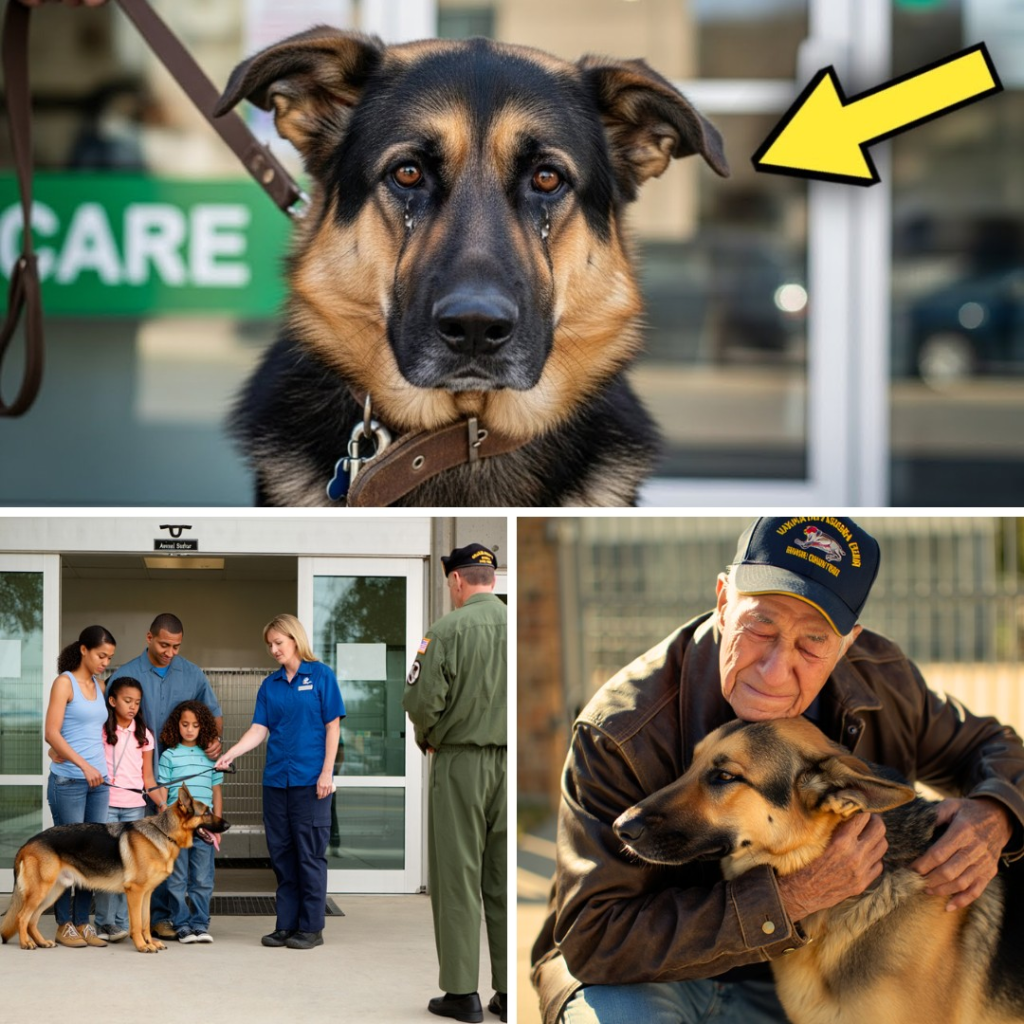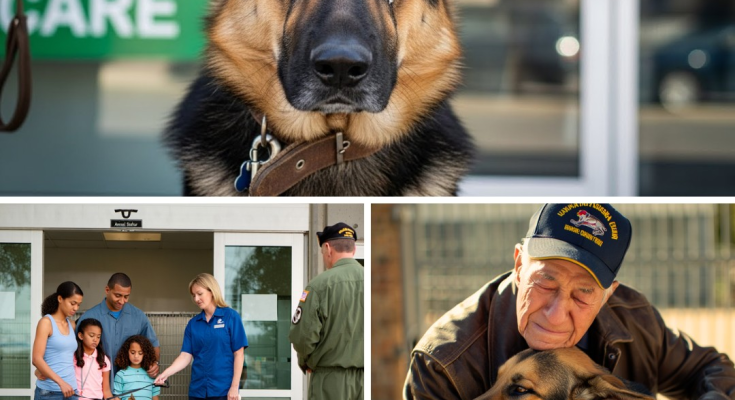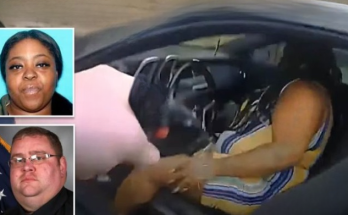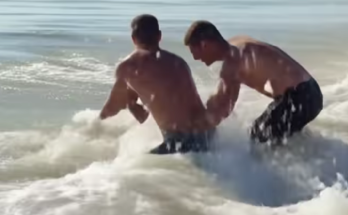
The shelter was noisy that afternoon—metal doors clanging, dogs barking for attention, people coming and going in hurried steps. The smell of disinfectant clung to the air, mixed with the sharp scent of fear and longing from the animals.
At the reception desk, a young couple stood awkwardly, their two children fidgeting at their sides. The man shifted uncomfortably, tugging on his baseball cap, while the woman avoided eye contact with the shelter staff. Between them stood a magnificent German Shepherd, tall, broad-shouldered, his thick black-and-tan coat gleaming under the fluorescent lights. His amber eyes darted between the children and the doorway, confusion flickering in them like a storm waiting to break.
“He’s just… too big,” the man muttered, clearing his throat. “Too much to handle.”
The shelter worker, already weary from a long day, gave a slow nod. She had heard it before. The excuses varied—too big, too loud, too much energy—but the end was always the same. She clipped a leash onto the dog’s collar and gently guided him toward the kennels. The German Shepherd resisted at first, looking back at the family with a tilt of his head, ears pricked as though waiting for them to change their minds. But no words came. No one called him back.
The staff sighed as they led him into the long hallway of cages. The metal door clanged shut, and the Shepherd sank down onto the cold concrete floor, pressing his head against the bars.
A Veteran’s Silence
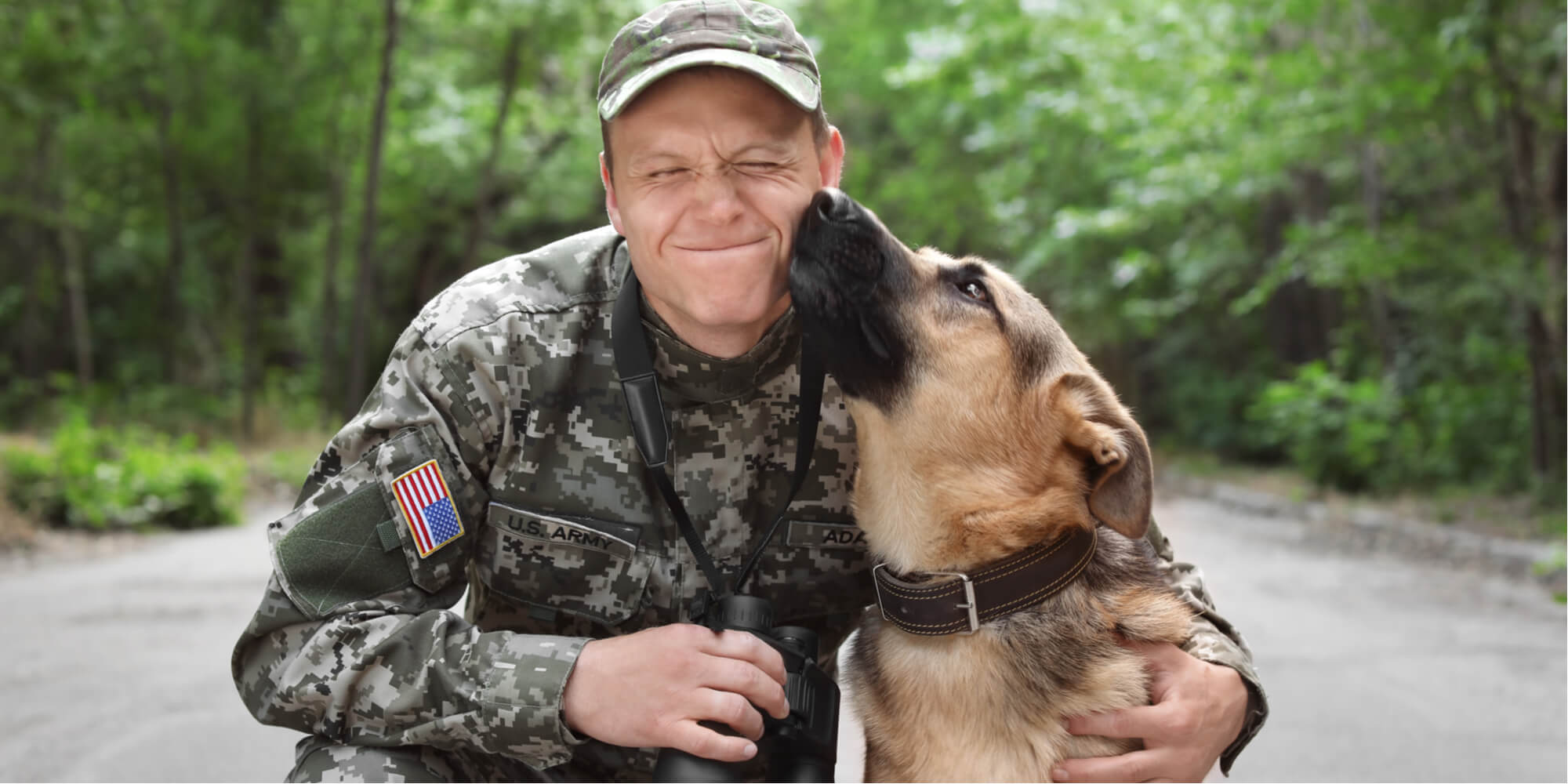
At the far end of the room, an elderly man leaned on his cane. Robert Hayes had come that afternoon with a carload of blankets, collected from neighbors to donate to the shelter. He had no intention of adopting; his life was quiet, carefully managed, and filled with memories that pressed too heavily on his chest most days.
But as he stood there, the German Shepherd’s silence cut through the chorus of barking dogs. Most dogs clamored for attention, paws scraping at the metal, tails thumping wildly. This one did not. He sat still, ears lowered, eyes locked on the door where his family had disappeared.
Robert gripped his cane tighter. That look—it was one he knew. He had seen it in the eyes of fellow soldiers overseas, men left behind after orders changed, their faces pressed against the wire of transport trucks as they realized they wouldn’t be going home. It was the look of abandonment, raw and uncomprehending.
His throat tightened. He told himself to move on, to leave the blankets and go. But his boots remained planted on the shelter’s concrete floor.
A Connection Forged in Silence
The staff member noticed Robert’s gaze lingering on the Shepherd. “His name’s Duke,” she said softly, walking over. “He’s three years old. Strong as an ox, but… gentle. Just too much dog for some people.”
Robert didn’t answer at first. He lowered himself slowly onto the bench near the kennel, his cane leaning against his knee. Duke’s ears flicked at the sound, and for the first time since his return, the dog lifted his head.
Their eyes met.
Duke stood, stretched cautiously, and padded closer. He didn’t bark, didn’t whine. He simply pressed his nose against the bars, a quiet request.
Robert’s hand trembled as he extended it. When the Shepherd’s warm breath brushed his skin, a jolt of recognition surged through him. The dog’s composure, his silent plea, reminded Robert of the K9 units he had served alongside decades ago—steadfast companions who had saved lives in silence, loyal until their final breath.
The Shelter Holds Its Breath

It happened quickly, yet stretched into a moment the entire shelter seemed to feel. Robert reached through the bars, palm open. Duke did something no one expected. Instead of licking or barking, he lowered his head and rested his massive skull into Robert’s hand.
The shelter went quiet. Even the staff paused, the usual din of barking fading as though every dog sensed something sacred was unfolding.
Robert’s chest tightened painfully, memories colliding with the present. He remembered dusty roads, distant gunfire, the feel of a dog pressing against his leg when the nights grew too long. He had buried friends, both human and canine. Yet here was this dog, returned like discarded baggage, offering him something he hadn’t felt in years—trust.
A Decision Made Without Words
“Would you… like to take him out to the yard?” the staff member asked hesitantly.
Robert swallowed hard. His body was tired, his knees stiff, but his spirit leaned forward with a strength he hadn’t felt in a long time. “Yes,” he whispered.
They clipped a leash on Duke and opened the kennel. The Shepherd stepped out gracefully, not pulling, not straining, but walking beside Robert as if they had done this a thousand times before. Outside, in the crisp autumn air, Robert lowered himself onto a bench while Duke sat at his feet, his large head resting on the veteran’s knee.
The staff watched from a distance. Duke, the “too big” dog, looked suddenly small as he curled protectively near the frail old man. Robert’s weathered hand stroked the thick fur, and for the first time in years, a faint smile tugged at his lips.
Healing Together
Robert hadn’t planned to adopt. He lived alone in a modest home, the walls lined with faded photographs of his younger days. The thought of starting over with a dog—especially one so large—would have seemed impossible that very morning.
But when he returned to the front desk, Duke’s leash in his hand, the decision was already made.
“This one’s coming home with me,” Robert said simply.
The staff exchanged glances, tears glistening in a few eyes. They filled out the paperwork, explaining the responsibilities, but Robert only half-listened. His gaze never left Duke, who stood patiently by his side, tail wagging slowly, as though he, too, understood that life had just shifted.
What Happened Next
In the weeks that followed, something remarkable unfolded.
Neighbors noticed Robert walking the massive Shepherd through the streets. At first, they worried—wasn’t the dog too much for him? But Duke never pulled, never bolted. He matched Robert’s pace, adjusting to the slow rhythm of his cane.
Children who once crossed the street to avoid the big dog began to run up and pet him, giggling as Duke wagged his tail and leaned into their hands. And Robert, who had spent years keeping to himself, found his porch filled with visitors eager to see the gentle giant.
More importantly, inside Robert’s home, silence no longer felt heavy. The nights weren’t so long when Duke lay by his bed, his steady breathing a comfort against old nightmares. On days when pain stiffened Robert’s joints, Duke nudged him gently, coaxing him to rise and step outside. Together, they built a routine, one that healed them both.
A Bond That Saved Them
Months later, the shelter staff received a letter from Robert. It contained a photo of him and Duke sitting side by side on the porch, both looking stronger, both looking at peace.
“You saved two lives that day,” the note read. “He needed a home. I needed a reason to keep going. Turns out, we were waiting for each other.”
The young family who had deemed Duke “too big” would never know what they had given up. But Robert knew. Duke knew. And in the quiet moments, when the veteran’s hand rested on the Shepherd’s broad back, no words were needed to understand the miracle that had taken place in that noisy shelter, the day silence spoke louder than anything else.
